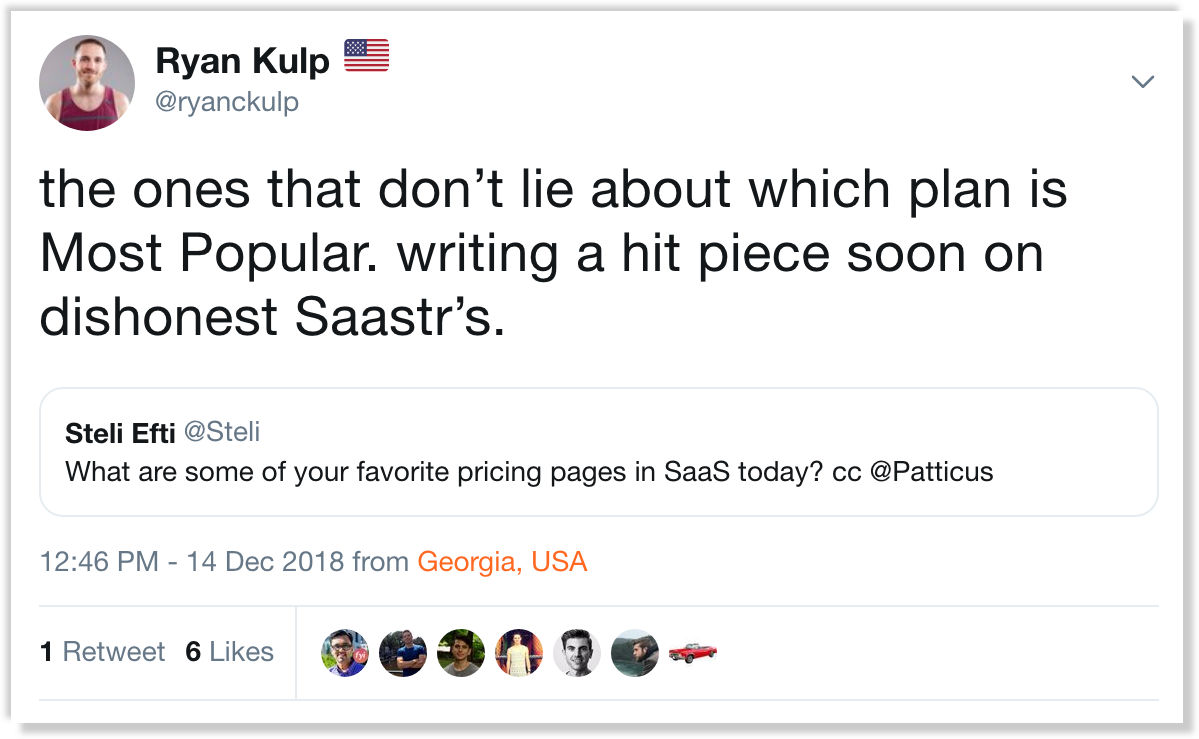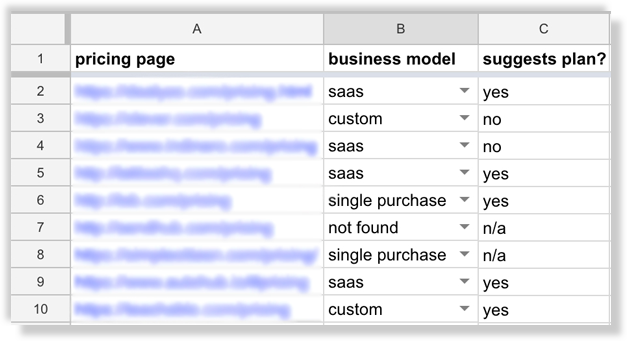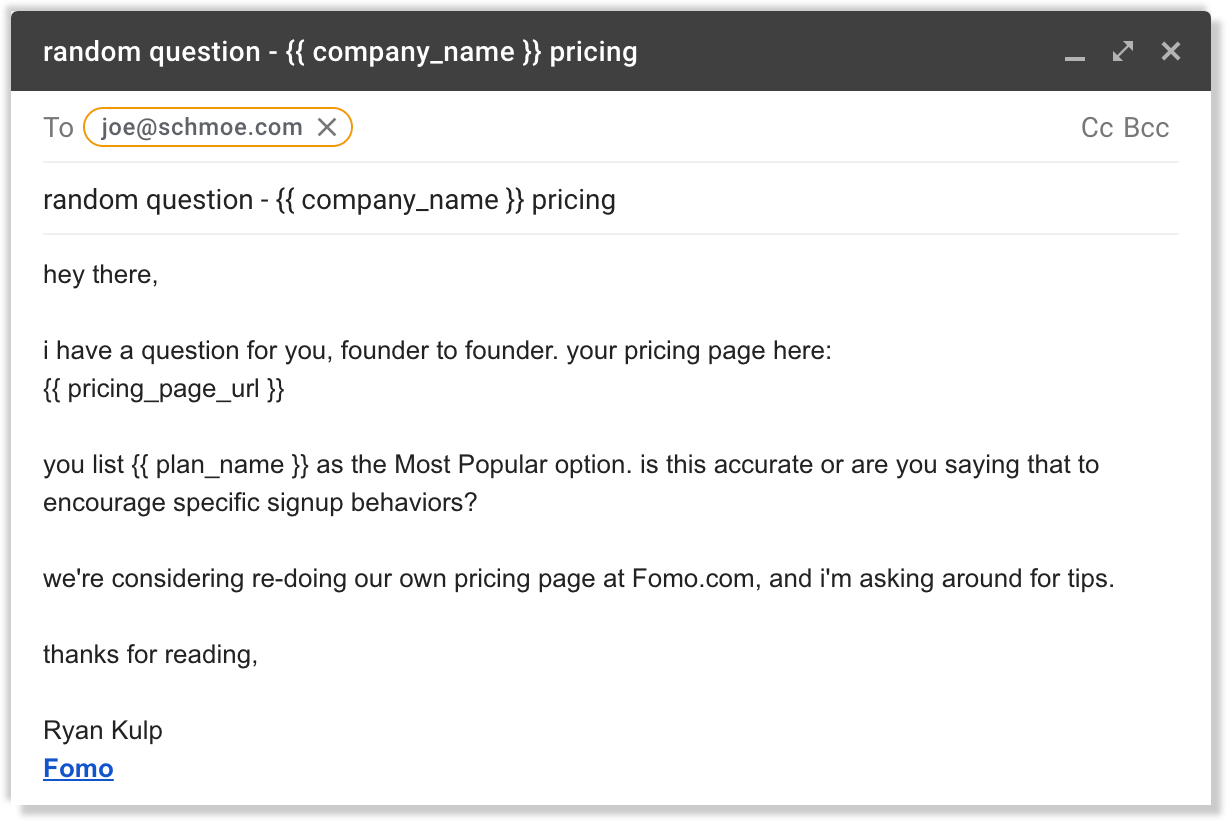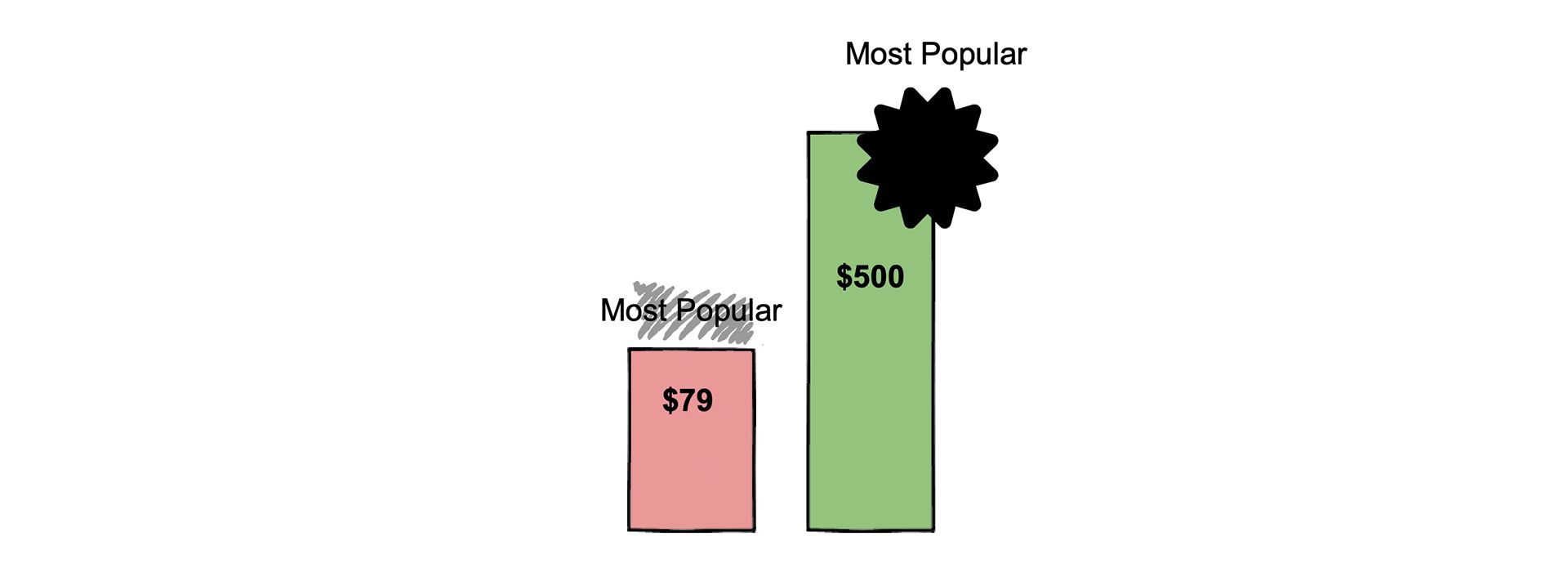SaaS Pricing Honesty
we’ve all been here:
you discover a new tool and convince yourself it’s worth a try. you visit the pricing page and find 3-5 options with varied features, pricing, and commitment requirements.
but one of the packages is different. it’s bold. bigger. has a pretty ribbon wrapped around it. this package is the Most Popular.
you’re no expert, so you take the advice and sign up. were you cheated?
it’s been demonstrated that recommending a plan performs better:

but where’s the line between a gentle suggestion and an outright lie?
we crawled 1,029 startup websites to find out.
inspiration
some people are honest, others are not. some people are also marketers.
the impetus for this project was a tweet, which i deleted before executing the following experiment.

research process
audience selection
in data-driven projects it’s critical to get an accurate sample size or the results are meaningless. so instead of Googling “SaaS companies” for random URLs, i decided to let a talented team do the curation for me: YCombinator.
YCombinator is the largest and most successful startup accelerator in the world. they receive thousands of applications per year and accept only a fraction of eager companies into their program in Palo Alto, California.
by narrowing our research to YC-only companies we benefit from thousands of hours of vetting, curation, and [hopefully] a baseline of credibility. for this study i used yclist.com → filter ‘active’ to produce a list of 1,029 startups.
data collection
next, i crawled every homepage for the word “pricing.” i sanitized the text to be case-insensitive, and the crawl also takes into account things like hidden dropdown menus and commented-out (hidden) HTML.
if the word “pricing” was on the page, we found it. this yielded 154 startups with public pricing.[1]
next, i crawled these 154 websites’ pricing pages to find phrases like “most popular,” “recommended,” or “suggested.”
in a few cases a startup has a pricing page like “/pricing” that is not actually linked from their home page. we crawled these too. and yes, we maintained a tense- and case-insensitive approach to capture more results.
this reduced our dataset to 69 websites, which i manually visited 1 by 1 to review their pricing model and point of view.

only 40 out of 69 examined websites had traditional SaaS pricing models, and 10 of those 40 recommend a plan.
outreach
i personally emailed the founder of each of these 10 companies, some variation of the following message:

if the pricing page had a “Suggested” banner instead of “Most Popular,” i tweaked the wording to “is this the most popular, or are you saying…”
in some cases i was able to personalize further because i am or was previously a customer. (in my opinion this greatly increases the chances of an honest reply)
4 days later, only 3 founders replied to my question. 🤔
- "yes it's accurate" - 1
- "to encourage specific behaviors" - 2
- no reply - 7
what this means
consider the worst case: i get 10 replies, 100% response rate, and every founder admits their “most popular” plan is not really the most popular.
this would still not be statistically significant, yet it should encourage more skepticism by savvy consumers browsing pricing pages.
although we experienced a different scenario (3 replies) my suggested action is the same: be wary.
there is no incentive for a marketer to admit their most popular plan is the cheapest, so it’s almost always the case that if a Most Popular plan is highlighted on a pricing page, it will cost more.
this also implies that in cases where a pricing page does not highlight a most popular package, the literal most popular package is likely the least expensive. (because if it wasn’t, they would probably say so.)
be honest
digital marketers love increasing conversion rates. and let’s face it: CRO is a lot easier than adding more value to customers. but please do it honestly.
to learn more about making your website more honest, go here.
footnotes
- some startups use terms like “plans” and “packages,” which our crawler ignored. i don’t think only 14.97% of startups on average (154 / 1029) have public pricing, i think it’s higher. but, many companies in this sample launched recently, thus may not have ready-to-use products. also, not all startups are SaaS.
